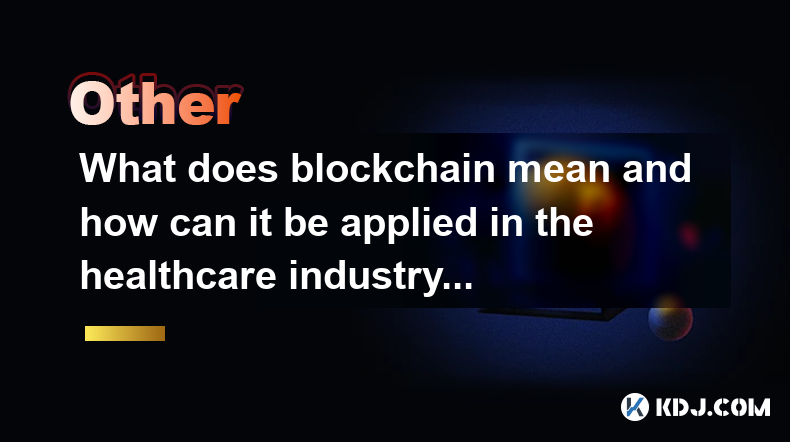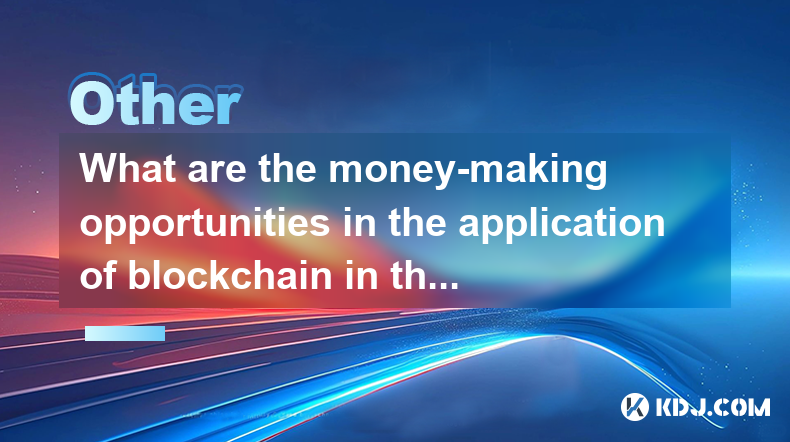-
 Bitcoin
Bitcoin $79,031.7280
2.38% -
 Ethereum
Ethereum $1,571.1582
5.24% -
 Tether USDt
Tether USDt $0.9998
0.04% -
 XRP
XRP $1.8889
5.41% -
 BNB
BNB $557.9353
2.56% -
 USDC
USDC $1.0000
0.01% -
 Solana
Solana $109.0020
7.84% -
 Dogecoin
Dogecoin $0.1510
8.03% -
 TRON
TRON $0.2355
4.19% -
 Cardano
Cardano $0.5866
5.65% -
 UNUS SED LEO
UNUS SED LEO $8.9813
0.50% -
 Toncoin
Toncoin $3.1352
4.55% -
 Chainlink
Chainlink $11.5982
7.42% -
 Stellar
Stellar $0.2293
4.50% -
 Avalanche
Avalanche $16.9742
8.35% -
 Sui
Sui $2.0451
10.97% -
 Hedera
Hedera $0.1573
14.80% -
 Shiba Inu
Shiba Inu $0.0...01120
2.21% -
 MANTRA
MANTRA $6.2934
2.88% -
 Polkadot
Polkadot $3.5991
4.23% -
 Bitcoin Cash
Bitcoin Cash $280.1689
7.38% -
 Litecoin
Litecoin $72.0897
7.82% -
 Dai
Dai $1.0003
0.03% -
 Ethena USDe
Ethena USDe $0.9990
0.06% -
 Bitget Token
Bitget Token $4.0695
4.76% -
 Hyperliquid
Hyperliquid $11.9669
17.51% -
 Pi
Pi $0.5730
1.71% -
 Monero
Monero $204.0459
4.53% -
 Uniswap
Uniswap $5.1641
4.36% -
 OKB
OKB $52.0556
6.35%
What does blockchain mean and how can it be applied in the healthcare industry?
Blockchain enhances healthcare by securing patient data, tracking pharmaceuticals, and streamlining operations, though challenges like regulatory compliance and scalability remain.
Apr 05, 2025 at 02:56 pm

Blockchain technology is a decentralized, distributed ledger that records transactions across numerous computers. This technology ensures that each transaction is secure, transparent, and immutable, making it nearly impossible to alter or delete data once it's recorded. In the cryptocurrency circle, blockchain is best known for underpinning cryptocurrencies like Bitcoin and Ethereum. However, its applications extend far beyond digital currencies. Blockchain's key features include decentralization, which removes the need for a central authority; transparency, where all participants can view the transaction history; and security, achieved through cryptographic means.
The potential of blockchain in the healthcare industry is vast. By leveraging blockchain, healthcare systems can enhance data security, improve patient privacy, and streamline operations. For instance, blockchain can securely store and share patient records, ensuring that medical data is both accessible to authorized personnel and protected from unauthorized access. Additionally, blockchain can facilitate the tracking of pharmaceuticals from production to consumption, reducing the risk of counterfeit drugs entering the supply chain.
Key Features of Blockchain Technology
Blockchain technology is built on several core principles that make it uniquely suited for various applications.
- Decentralization: Unlike traditional systems that rely on a central authority, blockchain operates on a network of computers. This means no single entity controls the data, reducing the risk of manipulation and increasing trust among participants.
- Transparency: Every transaction on a blockchain is recorded on a public ledger, visible to all participants. This transparency helps in verifying the authenticity of transactions and maintaining accountability.
- Immutability: Once data is recorded on a blockchain, it cannot be altered or deleted. This feature ensures the integrity of the data, making it an ideal solution for maintaining accurate and tamper-proof records.
- Security: Blockchain uses cryptographic techniques to secure transactions. Each block is linked to the previous one through a cryptographic hash, making it extremely difficult for hackers to compromise the system.
Applications of Blockchain in Healthcare
Blockchain technology offers numerous applications in the healthcare industry, each aimed at improving efficiency, security, and patient care.
- Secure Storage and Sharing of Patient Records: Blockchain can be used to create a decentralized database for storing patient records. This allows healthcare providers to access up-to-date information securely, improving the quality of care and reducing the risk of medical errors. Patients can also control who has access to their data, enhancing privacy.
- Supply Chain Management: Blockchain can track the journey of pharmaceuticals from manufacturer to patient. This transparency helps in verifying the authenticity of drugs, reducing the incidence of counterfeit medications, and ensuring that patients receive safe and effective treatments.
- Clinical Trials and Research: Blockchain can streamline the process of clinical trials by securely storing and sharing data among researchers. This can accelerate the pace of medical research and improve the reliability of results.
- Claims and Billing: By using blockchain, healthcare providers can automate the claims and billing process, reducing administrative costs and minimizing fraud. Smart contracts can be used to automatically process payments once certain conditions are met, improving efficiency and accuracy.
Benefits of Blockchain in Healthcare
Implementing blockchain in healthcare can bring several benefits, enhancing the overall efficiency and security of the system.
- Enhanced Data Security: With blockchain, patient data is encrypted and distributed across a network, making it highly secure. This reduces the risk of data breaches and unauthorized access, protecting sensitive medical information.
- Improved Patient Privacy: Patients can control who has access to their medical records. Blockchain's transparency ensures that any access to the data is recorded, allowing patients to monitor and manage their privacy effectively.
- Streamlined Operations: Blockchain can automate many administrative tasks, such as claims processing and billing. This reduces the administrative burden on healthcare providers, allowing them to focus more on patient care.
- Increased Trust and Transparency: By providing a transparent and immutable record of transactions, blockchain enhances trust among all stakeholders in the healthcare ecosystem. This can lead to better collaboration and improved healthcare outcomes.
Challenges and Considerations
While the potential of blockchain in healthcare is significant, there are also challenges and considerations that need to be addressed.
- Regulatory Compliance: Healthcare data is subject to strict regulations, such as HIPAA in the United States. Implementing blockchain solutions must ensure compliance with these regulations, which can be complex and time-consuming.
- Scalability: Blockchain networks can face scalability issues, particularly when handling large volumes of data. Healthcare systems generate vast amounts of data, so solutions must be scalable to meet these demands.
- Interoperability: Different healthcare systems and technologies must be able to work together seamlessly. Ensuring that blockchain solutions are interoperable with existing systems is crucial for their successful implementation.
- Cost and Implementation: Developing and implementing blockchain solutions can be costly and require significant investment in infrastructure and training. Healthcare organizations must weigh these costs against the potential benefits.
Case Studies and Real-World Examples
Several organizations and projects are already exploring the use of blockchain in healthcare, providing valuable insights into its practical applications.
- MediLedger: This project uses blockchain to improve the pharmaceutical supply chain. By tracking drugs from manufacturer to patient, MediLedger helps prevent counterfeit medications and ensures drug safety.
- Patientory: Patientory is developing a blockchain-based platform for managing patient data. This platform allows patients to securely store and share their medical records with healthcare providers, improving the efficiency and security of healthcare delivery.
- Guardtime: Guardtime is using blockchain to enhance the security of electronic health records. Their solution ensures that patient data is protected and verifiable, reducing the risk of data breaches and improving patient trust.
Future Prospects
The future of blockchain in healthcare looks promising, with ongoing research and development aimed at overcoming current challenges and expanding its applications.
- Integration with AI and IoT: Combining blockchain with artificial intelligence (AI) and the Internet of Things (IoT) could further enhance healthcare delivery. For instance, blockchain could securely store data generated by IoT devices, while AI could analyze this data to provide personalized healthcare solutions.
- Global Health Initiatives: Blockchain could play a crucial role in global health initiatives, such as tracking the distribution of vaccines and other medical supplies. This could improve the efficiency and transparency of these initiatives, ensuring that resources reach those in need.
- Patient-Centric Models: As blockchain technology matures, it could enable more patient-centric healthcare models. Patients could have greater control over their medical data and participate more actively in their healthcare decisions, leading to improved outcomes and satisfaction.
Frequently Asked Questions
Q: What is blockchain technology?
A: Blockchain technology is a decentralized, distributed ledger that records transactions across numerous computers. It ensures that data is secure, transparent, and immutable, making it ideal for applications in various industries, including healthcare.
Q: How can blockchain be used in healthcare?
A: Blockchain can be used in healthcare for securely storing and sharing patient records, managing the pharmaceutical supply chain, streamlining clinical trials and research, and automating claims and billing processes. These applications can enhance data security, improve patient privacy, and increase operational efficiency.
Q: What are the benefits of using blockchain in healthcare?
A: The benefits include enhanced data security, improved patient privacy, streamlined operations, and increased trust and transparency among stakeholders. These improvements can lead to better healthcare outcomes and more efficient healthcare delivery.
Q: What are the challenges of implementing blockchain in healthcare?
A: Challenges include ensuring regulatory compliance, addressing scalability issues, ensuring interoperability with existing systems, and managing the costs and complexities of implementation. Overcoming these challenges is crucial for the successful adoption of blockchain in healthcare.
Q: Can you provide examples of blockchain being used in healthcare?
A: Yes, examples include MediLedger for pharmaceutical supply chain management, Patientory for patient data management, and Guardtime for securing electronic health records. These projects demonstrate the practical applications of blockchain in improving healthcare delivery and security.
Q: What does the future hold for blockchain in healthcare?
A: The future looks promising, with potential integrations with AI and IoT, contributions to global health initiatives, and the development of more patient-centric healthcare models. Continued research and development will likely expand the applications and impact of blockchain in healthcare.
Disclaimer:info@kdj.com
The information provided is not trading advice. kdj.com does not assume any responsibility for any investments made based on the information provided in this article. Cryptocurrencies are highly volatile and it is highly recommended that you invest with caution after thorough research!
If you believe that the content used on this website infringes your copyright, please contact us immediately (info@kdj.com) and we will delete it promptly.
- Recovery of Altcoins Follows Bitcoin, Increasing the Total Crypto Market Cap
- 2025-04-08 18:25:12
- Promises of a V-Shaped Recovery Are Intensifying as Speculation Mounts That the Fed Will Pivot to QE
- 2025-04-08 18:25:12
- An apparent multi-million dollar trade gone wrong on the Hyperliquid derivatives exchange saw a JELLYJELLY memecoin trader lose millions
- 2025-04-08 18:20:12
- LF Labs (LF) Captures Investor Attention as It Moves Decisively in the Web3 Market
- 2025-04-08 18:20:12
- As 2024 Winds Down, Dogecoin, Sui, and BlockDAG Promise a Thrilling Start to 2025
- 2025-04-08 18:15:12
- Coldware (COLD) Emerges as a Contender to Dogecoin (DOGE) and Shiba Inu (SHIB)
- 2025-04-08 18:15:12
Related knowledge

Is the ranking of Chinese blockchain apps real and reliable?
Apr 04,2025 at 09:01pm
The ranking of Chinese blockchain apps has become a topic of interest for many in the cryptocurrency community, as it provides insights into the popularity and adoption of blockchain technology within China. However, the reliability and authenticity of these rankings are often questioned. This article aims to delve into the factors that influence these ...

What are the future development trends of blockchain game development?
Apr 03,2025 at 05:00am
Blockchain technology has revolutionized various industries, and gaming is no exception. As we look to the future, several trends are set to shape the development of blockchain games. These trends not only promise to enhance the gaming experience but also to integrate blockchain technology more seamlessly into the gaming ecosystem. Let's explore these t...

What are the high-return opportunities for blockchain investments?
Apr 05,2025 at 02:35pm
Blockchain technology has revolutionized the financial world, offering numerous high-return investment opportunities. These opportunities span various sectors within the cryptocurrency ecosystem, including cryptocurrencies, decentralized finance (DeFi), non-fungible tokens (NFTs), and blockchain startups. Each of these areas presents unique risks and re...

What are the maintenance costs of blockchain system development?
Apr 03,2025 at 06:07pm
The maintenance costs of blockchain system development are multifaceted and depend on various factors. These costs can include technical maintenance, security updates, infrastructure expenses, and personnel costs. Understanding these elements is crucial for anyone planning to develop or maintain a blockchain system. Technical MaintenanceTechnical mainte...

What are the money-making models of blockchain games?
Apr 04,2025 at 02:00pm
Blockchain games have emerged as a revolutionary way for players to earn real money while enjoying their favorite pastime. These games leverage the power of blockchain technology to create unique money-making models that benefit both the players and the developers. In this article, we will explore the various money-making models of blockchain games and ...

What are the money-making opportunities in the application of blockchain in the field of Internet of Things?
Apr 05,2025 at 10:35pm
The integration of blockchain technology with the Internet of Things (IoT) presents numerous money-making opportunities. Blockchain, with its decentralized and secure nature, can revolutionize how IoT devices interact, manage data, and conduct transactions. This article will explore various avenues where entrepreneurs, developers, and investors can capi...

Is the ranking of Chinese blockchain apps real and reliable?
Apr 04,2025 at 09:01pm
The ranking of Chinese blockchain apps has become a topic of interest for many in the cryptocurrency community, as it provides insights into the popularity and adoption of blockchain technology within China. However, the reliability and authenticity of these rankings are often questioned. This article aims to delve into the factors that influence these ...

What are the future development trends of blockchain game development?
Apr 03,2025 at 05:00am
Blockchain technology has revolutionized various industries, and gaming is no exception. As we look to the future, several trends are set to shape the development of blockchain games. These trends not only promise to enhance the gaming experience but also to integrate blockchain technology more seamlessly into the gaming ecosystem. Let's explore these t...

What are the high-return opportunities for blockchain investments?
Apr 05,2025 at 02:35pm
Blockchain technology has revolutionized the financial world, offering numerous high-return investment opportunities. These opportunities span various sectors within the cryptocurrency ecosystem, including cryptocurrencies, decentralized finance (DeFi), non-fungible tokens (NFTs), and blockchain startups. Each of these areas presents unique risks and re...

What are the maintenance costs of blockchain system development?
Apr 03,2025 at 06:07pm
The maintenance costs of blockchain system development are multifaceted and depend on various factors. These costs can include technical maintenance, security updates, infrastructure expenses, and personnel costs. Understanding these elements is crucial for anyone planning to develop or maintain a blockchain system. Technical MaintenanceTechnical mainte...

What are the money-making models of blockchain games?
Apr 04,2025 at 02:00pm
Blockchain games have emerged as a revolutionary way for players to earn real money while enjoying their favorite pastime. These games leverage the power of blockchain technology to create unique money-making models that benefit both the players and the developers. In this article, we will explore the various money-making models of blockchain games and ...

What are the money-making opportunities in the application of blockchain in the field of Internet of Things?
Apr 05,2025 at 10:35pm
The integration of blockchain technology with the Internet of Things (IoT) presents numerous money-making opportunities. Blockchain, with its decentralized and secure nature, can revolutionize how IoT devices interact, manage data, and conduct transactions. This article will explore various avenues where entrepreneurs, developers, and investors can capi...
See all articles






















































































